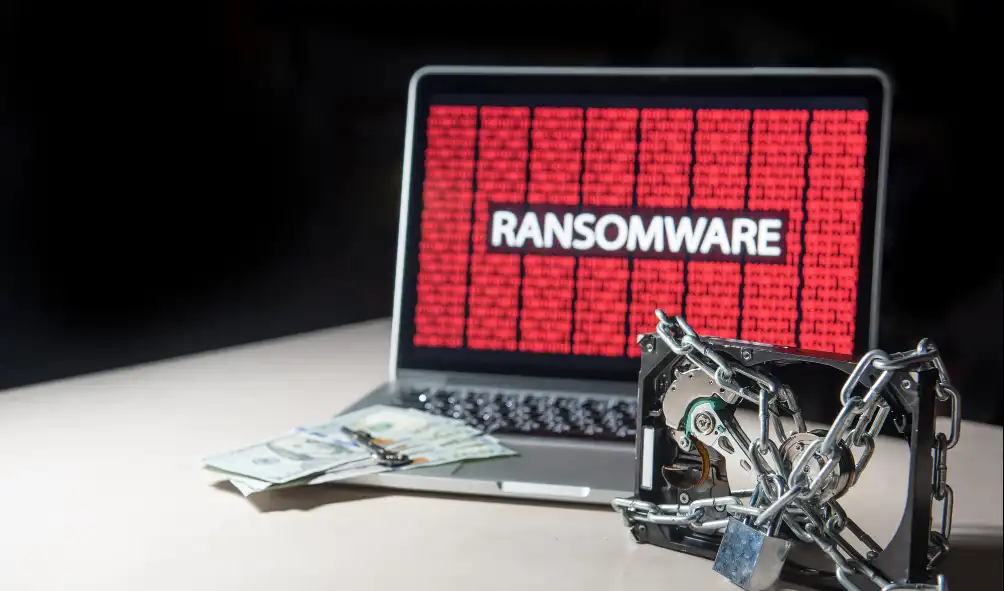
In 2024, ransomware attacks continue to be one of the most significant threats to businesses and individuals across the globe. In the UK, the number of ransomware incidents has been steadily increasing, with cybercriminals becoming more sophisticated in their methods. With organisations relying heavily on digital systems for their operations, the risk of falling victim to ransomware is higher than ever before.
In this blog post, we will explore the latest trends in ransomware, why it poses such a threat to businesses, and how UK organisations can protect themselves. We will also discuss the role of cybersecurity companies like Cyber United in helping businesses mitigate these risks.
What is Ransomware?
Ransomware is a type of malicious software (malware) that locks or encrypts a victim’s data, making it inaccessible. The cybercriminal behind the attack demands a ransom, typically in cryptocurrency, in exchange for decrypting the data or restoring access.
Ransomware attacks can be incredibly disruptive. If businesses fail to protect themselves, they can face devastating consequences, including financial losses, reputational damage, and regulatory penalties. The rapid growth of remote working has also created new vulnerabilities, with employees accessing business systems from unsecured networks, making it easier for attackers to launch successful ransomware campaigns.
The Rise of Ransomware in 2024
In recent years, the scale and frequency of ransomware attacks have increased dramatically. According to the UK National Cyber Security Centre (NCSC), there has been a significant rise in the number of ransomware attacks targeting UK businesses, government entities, and even healthcare organisations. This is partly due to the evolving tactics used by cybercriminals, as well as the increasing sophistication of the ransomware itself.
One of the most notable trends in 2024 is the rise of double extortion ransomware attacks. In these attacks, cybercriminals not only encrypt data but also steal sensitive information. They threaten to release this data publicly unless the victim pays the ransom. This approach adds another layer of pressure on businesses to pay the ransom, as they fear the potential consequences of data leaks.
Another trend is the use of Ransomware-as-a-Service (RaaS) platforms. These platforms allow less technically skilled criminals to launch ransomware attacks by simply purchasing access to the malware. This has resulted in a surge in the number of ransomware attacks globally, as the barrier to entry has been lowered.
The Financial Impact of Ransomware on UK Businesses
The financial cost of a ransomware attack can be crippling for businesses. According to recent reports, the average cost of a ransomware attack in the UK is £4.4 million, including ransom payments, recovery costs, and operational disruptions. For smaller businesses, this cost can be devastating and may even result in bankruptcy.
Additionally, organisations face indirect costs such as damage to their reputation, loss of customer trust, and legal fees if personal data is compromised. In the UK, companies may also face hefty fines for breaching data protection laws under the General Data Protection Regulation (GDPR). If customer data is exposed in a ransomware attack, the company may be required to notify affected individuals and regulatory authorities, which can significantly damage their brand.
It’s not just large corporations that are at risk. Small and medium-sized enterprises (SMEs) in the UK are increasingly becoming prime targets for ransomware attacks. Cybercriminals see smaller businesses as easy targets due to their often limited cybersecurity resources.
How UK Businesses Can Protect Themselves from Ransomware
While ransomware poses a significant threat, there are numerous strategies that businesses can implement to reduce the risk of an attack. Here are some practical steps businesses in the UK can take to protect themselves:
1. Implement Robust Cybersecurity Measures
The foundation of any successful ransomware prevention strategy is a strong cybersecurity framework. UK businesses should prioritise the following measures:
- Firewalls and antivirus software: Ensure that firewalls and antivirus programs are in place and kept up to date to defend against known threats.
- Intrusion Detection Systems (IDS): Use IDS to monitor network traffic for unusual activity that may indicate a potential ransomware attack.
- Encryption: Encrypt sensitive data to make it unreadable to attackers if it is stolen.
- Multi-Factor Authentication (MFA): Implement MFA on all accounts, particularly those that have access to critical systems and data.
Cyber United offers tailored solutions for UK businesses, including comprehensive cybersecurity assessments and the implementation of robust security protocols to prevent ransomware attacks.
2. Employee Training and Awareness
Human error is one of the most common causes of successful ransomware attacks. Employees may accidentally click on malicious links or open infected attachments in phishing emails, allowing ransomware to infiltrate the system.
Training employees to recognise the signs of phishing attempts and other malicious activity is essential. Regular cybersecurity awareness sessions should be conducted to educate employees about the risks of ransomware and the importance of good security hygiene.
3. Backup Your Data Regularly
One of the best ways to protect against ransomware is to ensure that your data is backed up regularly. Having up-to-date backups means that if you fall victim to an attack, you can restore your systems without paying the ransom.
However, it’s important to store backups in a separate location or offline to prevent ransomware from infecting them. Businesses should also test their backups regularly to ensure that data can be restored quickly in the event of an attack.
4. Regularly Update Software and Patch Vulnerabilities
Outdated software and unpatched vulnerabilities are common entry points for ransomware. Cybercriminals often exploit these weaknesses to gain access to systems.
UK businesses should implement a process to regularly update all software, including operating systems, applications, and third-party tools. It’s also essential to apply security patches as soon as they are released by vendors to minimise the risk of exploitation.
5. Limit Access to Critical Data
Not all employees need access to sensitive or critical data. By limiting access to only those who require it for their roles, businesses can reduce the potential attack surface for ransomware. This principle of least privilege should be applied across all systems and networks.
6. Work with a Trusted Cybersecurity Partner
Given the evolving nature of ransomware threats, it’s essential for businesses to work with experts who can provide guidance and proactive protection. Partnering with a reputable cybersecurity company can help you implement a comprehensive security strategy tailored to your specific needs.
Cyber United offers a range of cybersecurity services, including vulnerability assessments, penetration testing, and incident response planning to ensure that businesses are prepared for ransomware threats.
7. Have a Ransomware Response Plan
In the event that your business is targeted by ransomware, having a response plan in place is critical. This plan should outline the steps to take if an attack occurs, including how to communicate with stakeholders, isolate infected systems, and restore data from backups.
It’s also essential to decide in advance whether you will pay the ransom if attacked. Law enforcement agencies, such as the National Crime Agency (NCA), strongly advise against paying the ransom, as it only fuels the cybercriminals’ activities.
The Role of the UK Government and Law Enforcement
The UK government and law enforcement agencies play an important role in tackling the rise of ransomware. The National Cyber Security Centre (NCSC) works to support businesses by providing resources, guidance, and warnings about emerging threats. Additionally, the NCA works to disrupt ransomware gangs and bring cybercriminals to justice.
Businesses can also report ransomware attacks to the Action Fraud service, which helps gather intelligence to prevent future attacks.
Conclusion
Ransomware remains a significant and growing threat to businesses in the UK. The consequences of a successful attack can be devastating, both financially and reputationally. However, by taking proactive steps, such as implementing strong cybersecurity measures, training employees, and working with a trusted partner like Cyber United, businesses can significantly reduce their risk of falling victim to ransomware.
By staying vigilant and adopting a comprehensive cybersecurity strategy, UK organisations can safeguard their data, protect their customers, and ensure business continuity in the face of this growing threat.
